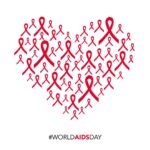HIV Prevention Injection Rolls Out In Cape Town
New HIV prevention injection is available to South Africans as a pilot project. The injection provides up to two months of prevention and comes along with an antiretroviral drug, cabotegravir. The drug was proven to be effective about three years ago and is 66% effective in preventing HIV among gay men in the United States and other countries.
According to Professor of Global Health in Epidemiology at Caprisa Salim Abool Karim, new infections continue to occur in Subsaharan Africa. He reiterated the need for the healthcare community to do better in terms of preventing HIV including using prophylaxis.
“We are still seeing about 1,3 million new infections worldwide and about half of all of those infections continue to occur in sub-Saharan Africa. So, there’s no question (that) we desperately need to do better in terms of prevention. And one of the ways to do better is to use pre-exposure prophylaxis. And what does that mean? It’s basically where you take a medication like an anti-retroviral, and you’ll take it while you still don’t have HIV. So, that if you ever are exposed, it will prevent you from getting infection.”
A South Africa-based company has secured the rights to manufacture vaginal rings containing an antiretroviral drug, dapivirine to help in the prevention of HIV. The vaginal ring is easy to use and is inserted and removed by the user, providing protection for a month after which the user should replace it with a new ring.

Studies show that the vaginal ring is not effective at preventing HIV compared to HIV injections and prevention pills. However, its benefits over other tools have made the World Health Organization (WHO) include it in the package of sexual health services that are available to women.
Nearly 8 million people are living with HIV, in South Africa. About 5.7 million are on antiretroviral treatment while 2 million should be on treatment but are not. Even with the various treatment options available, there are notable new infections but the statistics show that young adults of the ages between 15 and 24 are vulnerable to the virus and are at the risk of contracting HIV.
These statistics are saddening considering that young people are well informed about how the virus is spread in addition to the accessibility to protection. Prevention efforts should zone in on the youth as well as use influencers, communication platforms and channels to reach the youth which have an effect in reducing the rising number of HIV infections.
South Africa has prioritised treating those who have HIV and their treatment is free no matter their CD4 count. The country is also ramping up efforts to prevent mother-child transmission in addition to encouraging medical male circumcision.
Most people infected with the virus are scared of seeking treatment because of stigma or the fear of judgment. The country is addressing this through awareness of the rights and responsibilities of those who are infected and affected.
It remains a reality that sexually active people in South Africa are at risk of contracting HIV. South Africans should recognize that HIV is preventable and treatable and there are affordable options for people living with the virus to have happy lives.
READ ALSO: The Sex Position That Transmits HIV Virus
 996
996







